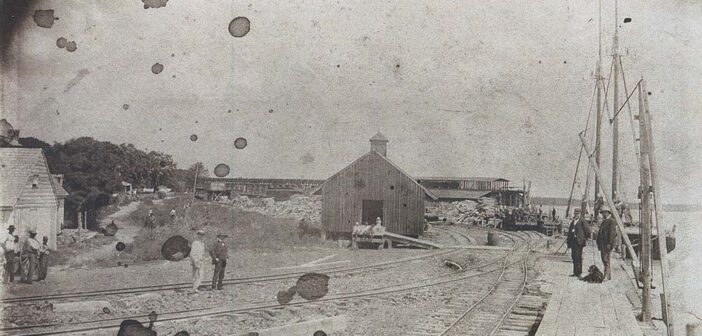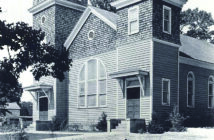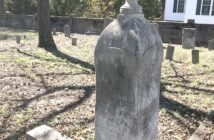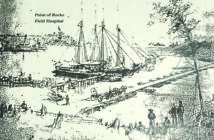The Foundation of Our History
History is like a rich vein of gold that runs through the community of Chester. A conversation with just about anyone who lives here will eventually find its way to the subject of our past. And Chester’s history runs deep and spans many centuries. It’s not just about who used to live in the old stone house or even about how Snead and Stebbins developed what we now know as “the village” in the mid-nineteenth century. The history of Europeans who lived and died working the land we now call home goes back almost 400 years. Population grew in this part of Virginia due to the settling of Henricus and Bermuda Hundred by just a handful of men.
There was a time, half a millennium ago, when the simple lives of the Appomattica Indians were played out on the peninsula of land created by the James and Appomattox Rivers. The Appomatticas, part of the Powhatan nation (whose chief was the father of Pocahontas), occupied a village on the flat high land where the sleepy village of Bermuda Hundred and the Honeywell and Phillip Morris plants now stand. The Appomatticas had cleared the land and cultivated corn there. A few months after Sir Thomas Dale established Henrico Town (Henricus) in 1611, he had the Indians driven off the land. Two years later the colonists built a two-mile long palisade from river to river and began to farm the land for themselves.
The area known as Bermuda Hundred was one of several “Hundreds” provided by the Virginia Company during that time, Rochedale Hundred being another. A “Hundred” is the amount of land it required, at the time, to support one hundred people. Bermuda Hundred survived the Indian attack of 1622, and as Henrico town faded, Bermuda Hundred continued to thrive throughout the seventeenth century.
Bermuda Hundred early on was a bustling port and center of commerce and was certainly the main jumping off point for settling this area. Francis Eppes II established a house and general store there by 1660, and by the time of the Declaration of Independence Bermuda Hundred was a shipping center.
In the mid-eighteenth century, it almost became Virginia’s third capitol when folks complained about the inconvenient location of Williamsburg. During the Revolution Benedict Arnold occupied the town and used it as headquarters, shipping his captured booty from Richmond and Petersburg. Tall ships and eventually steamboats would have been moored at the wharf at Bermuda Hundred as its importance as a commerce center peaked. After the Revolutionary War the state established a customs house at Bermuda, and for several years it was the busiest in the state. Once the customs office closed in 1800, the commerce center began to decline.
During the 1850s William Johnson, a failed prospector, rebuilt the waterfront store and docks and took up residence in the house that is occupied by the Gray family today. The port, which once shipped tobacco, wheat, pig iron and even slaves, was now relegated to shipping lumber that came by the Bright Hope Railroad.
Bermuda Hundred was once again plunged into the center of history when Yankee General Benjamin Butler used the little village as his headquarters during the Civil War. His Bermuda Hundred Campaign spilled blood as far west as the train station at Chester and included the battle at Yellow House where the YMCA stands today.
Bermuda Hundred lost its connection to the rest of Chesterfield County during World War I when the tracks of the Bright Hope Railroad were taken up and shipped to France as part of the War effort. The little community held on to its post office, at the time one of the oldest in the country, until 1941. Now the mail is delivered out of Chester. The Honeywell and Phillip Morris plants cast a shadow on the community and its population of 14, and the only sign of its rich past are the wharf pilings on the river, the home of the daughter of Fred and Evelyn Gray family and the ferry to the Presquile Island National Wildlife Preserve. Bermuda Hundred, once a busy port and entrance to the new world, is now only a shadow of itself. But its present peace and tranquility coupled with its location on the river may not be a bad trade off.




